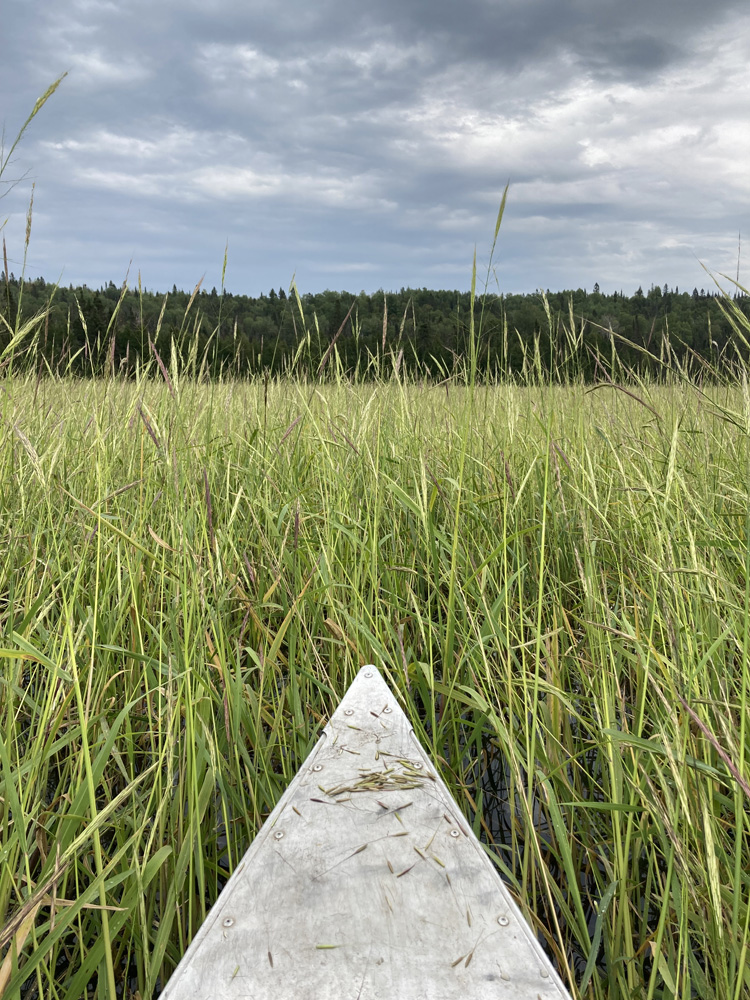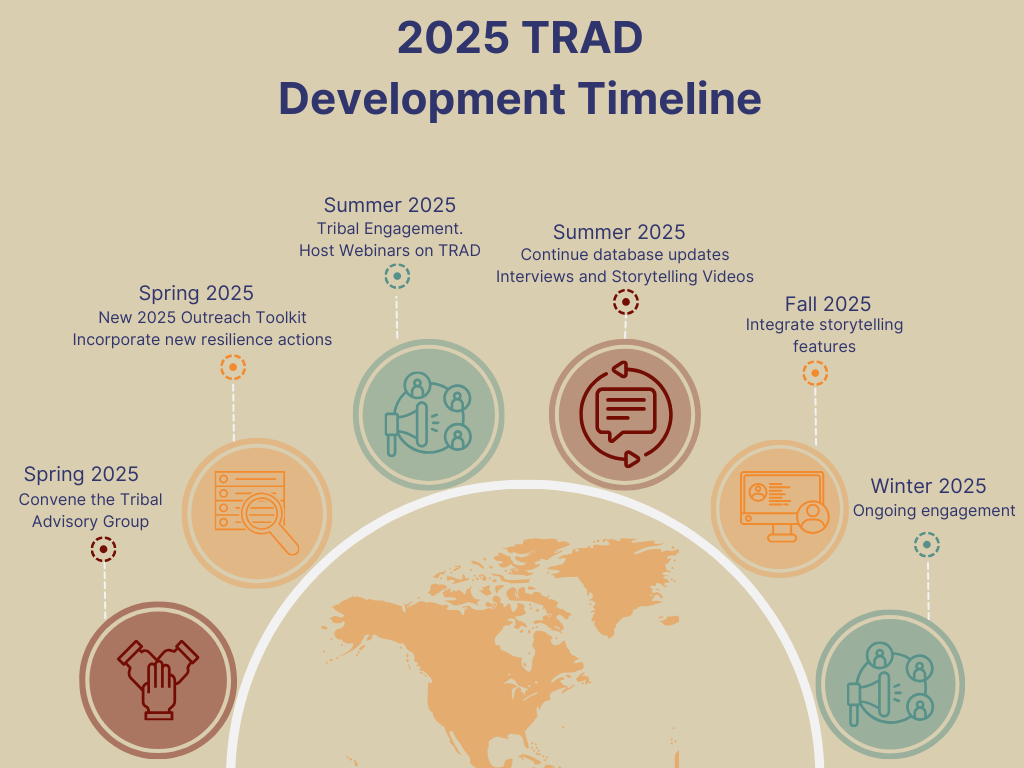About Us
The Tribal Resilience Action Database project brings together a group of project partners and advisors representing more than two dozen Tribes across North America to create a culturally sensitive, easily accessible, and useful database of climate adaptation strategies and community examples already published by Tribes that can be used to inform ongoing and new climate adaptation and resilience work in Tribal communities.
Core Team
Led by the Upper Snake River Tribes, Columbia River Intertribal Fish Commission, and the Upper Columbia United Tribes with support from Adaptation International and Valice, this project included two years of engagement and design work.
National and Regional Tribal Advisory Groups
Included representatives from more than 25 Tribes, Tribal Organizations, and Tribal Allies. A series of workshops and working meetings were used to guide, review, and refine the development of the website.
Collaborative Development of Icons
To help communicate the areas of action for each item in the database the core team and advisory group codeveloped a set of icons that integrate cultural values and indigenous world views into the identification of the different categories of action.

Data Sovereignty
The Tribal Resilience Action Database team recognizes the ethical and moral responsibility that comes with compiling and amplifying Knowledges from already published climate adaptation plans. The team recognizes and acknowledges the role and interaction of multiple knowledge systems in climate change research, vulnerability assessment, and the climate adaptation process. We also recognize that each Tribal Nation, organization, and Tribal community has its own laws that guide and structure how different facets of knowledge are treated by Tribal and non-Tribal entities and that the sharing of these knowledges is governed by principles and values of an Indigenous community, which defines an equitable and productive relationship with research and project partners. Months of outreach and engagement were geared towards reaching every Tribe whose plan is included in the database. Overall, the Resilience Action Database aims to follow two key principles through the potential integration and use of the Knowledge and data created and owned by Tribes: 1) Free, Prior, and Informed Consent; and 2) Cause No Harm. – Read more about the details of these policies and the outreach and engagement work here.
How to use the database
Just start searching by key words for actions or click through to specific Tribal Adaptation Plans to learn how to use the web portal to find the information you need to address key concerns and build resilience.
feedback and Input
Throughout the course of 2025, the project team is incorporating new plans, testing new ideas, and continuing to improve the web portal. Have ideas, comments, or thoughts to share.
Funding
The development of the web portal was made possible by a generous grant from the United States Geological Survey (USGS) through the Northwest Climate Adaptation Science Center.

Timeline







